
My research indicates that a financially sustainable independent school responds to stakeholder needs by using strengths, managing weaknesses, generating adequate operating surpluses to fund debt, reinvestment and cash reserves, identifies changing circumstances, and adapts in a timely manner.
So how are you responding to changes in your school’s internal and external environments?
In this article I focus on key historical trends to help you imagine future trends and build a strategy to manage and capitalise on these to protect your school and the sector.
The Trends in Key Economic Parameters published by Independent Schools Australia in October 2020 highlighted the following:
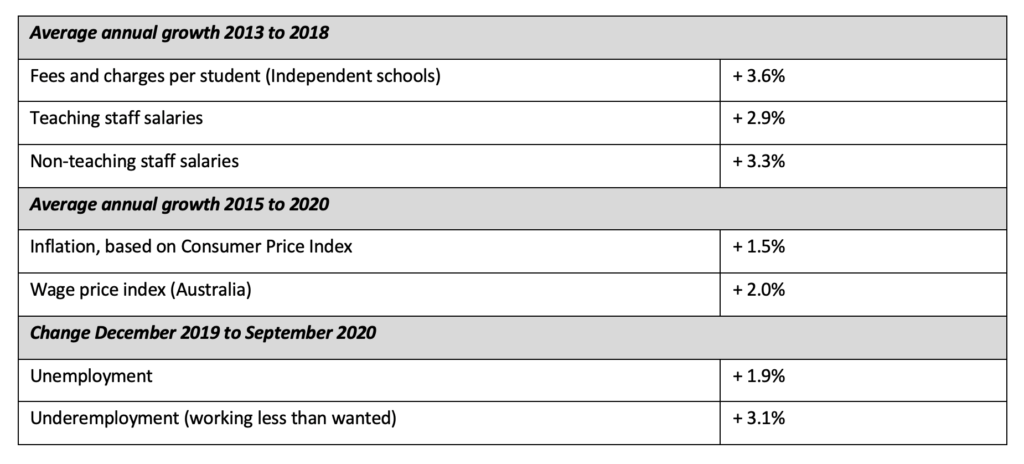
Based on the annual Somerset Education Financial Survey for Schools (FSS), Figure 1 shows a compound increase in Income and Expenditure per student of about 4% per annum over the past 10 years which is almost double the growth in general population wages over that time.
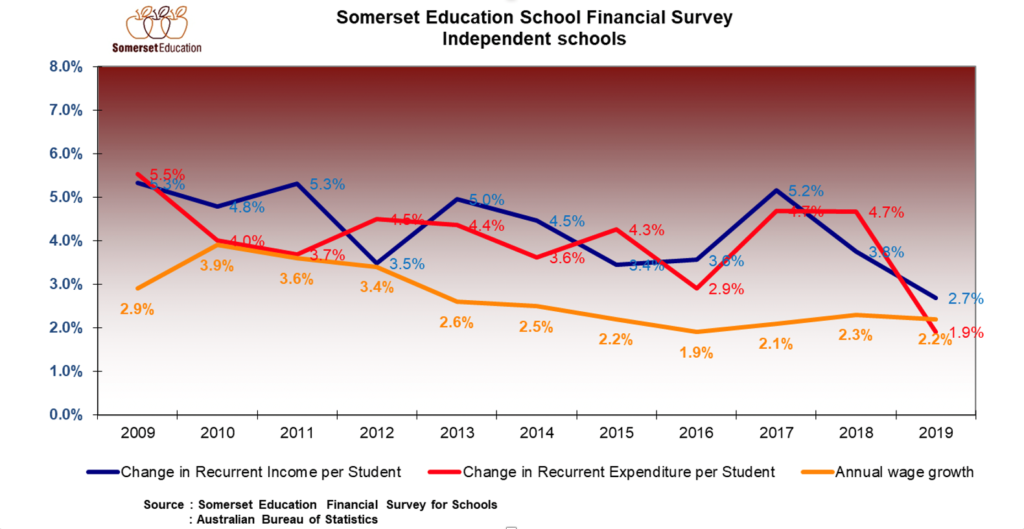
Figure 1 Change in income and expenditure per student compared to annual wage growth
The FSS indicates staff wages represent an average 78% of an independent school’s operating expenses in 2019. Figure 2 indicates that the average independent school of 500 enrolments has five more staff in 2019 than it did in 2009 representing about $600,000 per annum in additional wages.
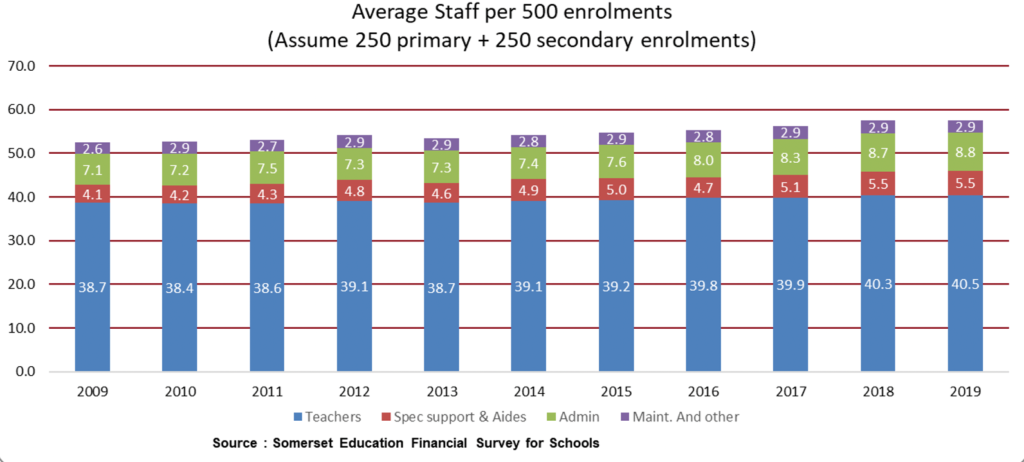
Figure 2 Average staff numbers in an independent school of 500 enrolments
These statistics indicate costs in independent schools are increasing faster than inflation, therefore so too have school fees. But general population wage growth is not keeping pace indicating an eventual affordability problem for the independent schools’ sector.
Logic indicates that expenses and school fees cannot continue to increase faster than inflation without an eventual negative effect on affordability and therefore decreased demand for independent schooling.
Other countries with less government support have in the past, and will likely again, experience school closures and mergers when economic conditions decline. In the USA, Independent schools closely analyse school fee affordability of their enrolment demographic and the sustainability of fee concessions.
Australian Independent Schools have shown an increasing trend in fee concessions over the past 10 years—see Figure 3. This supports my growing concern that parents are finding it increasing difficult to afford independent school education and schools are responding but without addressing expenses.
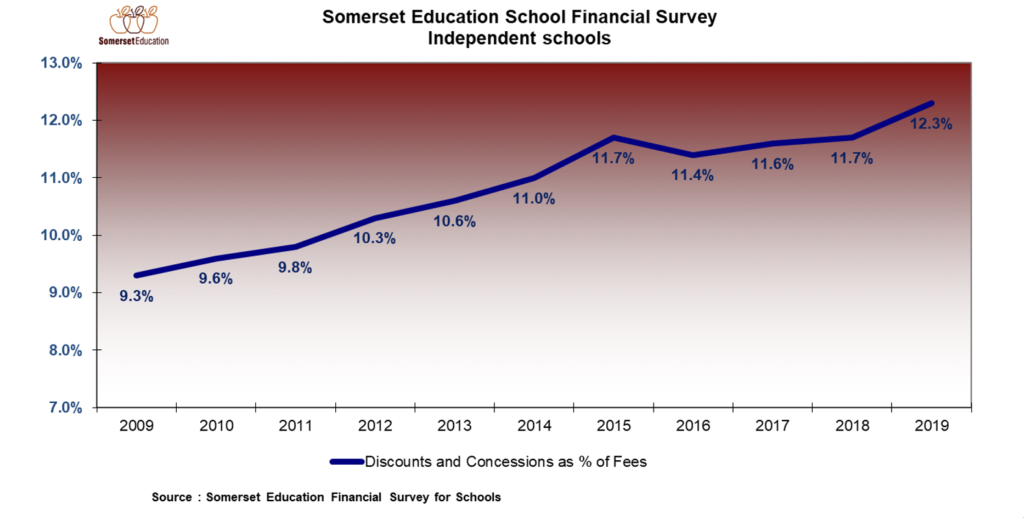
Figure 3 Average discounts and concessions as a percentage of fees
The School Fees Report 2021 published by Edstart indicated an average school fee increase across Australia of 1.05% in 2021, down from 2.83% in 2020. Their sample of over 400 schools indicated many schools kept their fees steady in 2021 to assist families financially impacted by the pandemic with 40% of schools not increasing fees in 2021 compared to 7% in 2020.
Indications are that pressure on school fee affordability is real. With extra school staff plus wages increasing at 3% per annum, fees increasing at 1% per annum and concessions also increasing—depending on changes in grant income—it is probable that operating surpluses will reduce unless the sector responds/pivots.
Figure 4 indicates that for many years, the average independent school has produced a Net Operating Margin of about 13% = $130,000 operating surplus (before interest and depreciation) for every $1 million in gross recurrent income. Without changes to operations, it is probable that the gap between income and expenditure per student in Figure 4 will reduce going forward, resulting in lower operating surpluses.
It is operating surplus that funds asset replacement, debt servicing, cash reserves and financial sustainability.
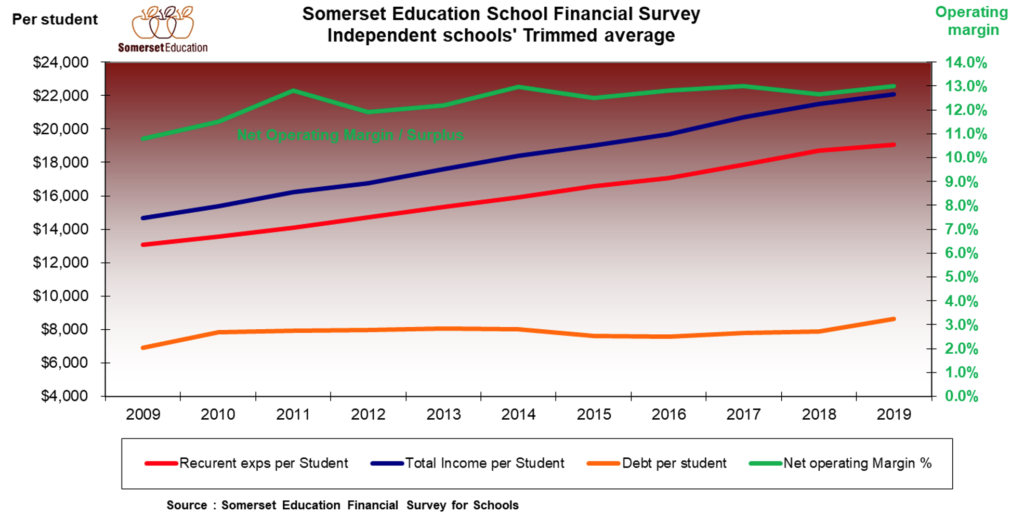
Figure 4 Trend in recurrent income and expenditure per student, net operating margin (relative surplus) and debt per student
Strategically, I encourage schools to carry out an environmental scan of social, demographic (numbers and affordability), technological, economic, ecological, political, legal, ethical and competition to create scenarios of what your school may look like ten years into the future.
Also participate in the Somerset Education Financial Survey for Schools (FSS) annually to carry out a financial “health check” and identify trends in your key ratios. This trend analysis is especially important to identify and display changing circumstances to the board so they can respond accordingly.
My passion for the FSS was reinforced by a recent analysis of two groups of schools that consistently participated in the FSS over a few years. The first group of 31 schools showed an average increase in Net Operating Margin (operating surplus) of +21%. The second group of 18 schools showed an average increase in Net Operating Margin of +36%, Working Capital +40% and Debt Servicing Cover +35%. I am certainly not guaranteeing improvements, but it supports my research and general observations that consistent participation in the FSS contributes to school financial sustainability. I aim to empirically prove this in my current PhD studies.
Using the environmental scan and the FSS information, build scenarios of the future, work backwards to identify the steps that may have contributed to the most likely future scenario. Then work forwards again to develop strategies and action plans “dollarising” these into a 10-year budget. For more on this see my blog dated 9 March 2021—Three steps toward financial sustainability.
We look forward to seeing your school in the 2021 (2020 school-year) FSS which is now receiving 2020 school year data. Feedback from last year indicated schools loved the format and on-line portal requesting it not to change, 93% rate the survey 4 to 5 stars (out of 5 stars), and 100% recommend it to others. We sincerely thank you for your support.
We encourage schools to complete the FSS by 31 July even though you can participate at any time up until April next year. Depending on the rate of participation, we expect to have 2020 school-year reports available from 2nd August 2021. Survey participation starts from $715 including GST ($358 for schools with less than 200 enrolments) making it a very economical financial assurance tool.
For more information about the FSS or our budgeting and reporting tools, please do not hesitate to contact us via email or call on 1300 781 968.
Kindest regards


















